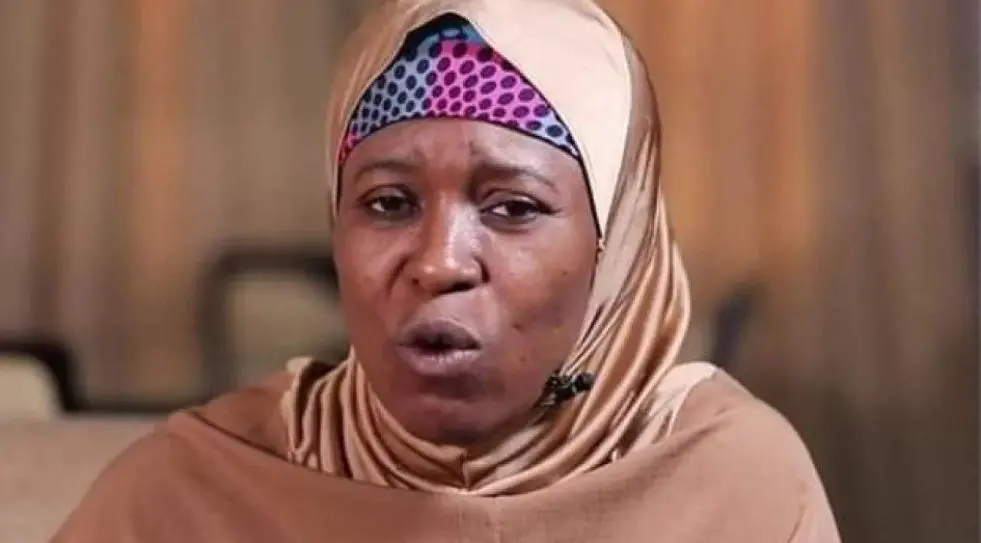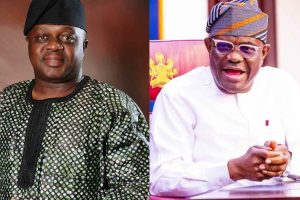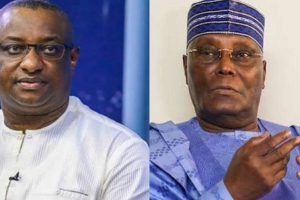
Aisha Yesufu, a well-known Nigerian activist and vocal critic of government policies, has taken a strong stance on the current state of the Peoples Democratic Party (PDP), describing it as a once-formidable political force that has now lost its ability to effectively challenge the ruling party.
Yesufu, known for her outspoken views, expressed her disappointment with the PDP in a recent post on X, where she made it clear that the party’s decline began years ago. She boldly asserted that the PDP was destroyed as an opposition force in 2014, criticizing the party’s leadership for its failure to connect with and serve the Nigerian people.
Reflecting on the PDP’s rise and fall, Yesufu wrote, “The same PDP that we were attacked for opposing is now the PDP you see as destroyed?” This comment highlights her disbelief at the current state of the party, which once held a dominant position in Nigerian politics. Yesufu, however, believes that the party’s downfall was self-inflicted, attributing it to the arrogance and entitlement displayed by its leaders during their time in power. According to her, the PDP’s belief in its untouchability, combined with the party’s dismissive attitude toward ordinary Nigerians, played a significant role in its collapse.
She continued by stating, “PDP was destroyed since 2014! They believed they were untouchable and treated Nigerians like lepers,” underlining the disconnect between the party and the people it was supposed to represent. Yesufu’s statement suggests that the PDP’s sense of invulnerability and its failure to address the needs and concerns of the Nigerian populace led to the erosion of its political base. The party’s inability to adapt to the changing political landscape and its failure to embrace reforms ultimately caused it to lose its influence and credibility.
Despite the severity of her critique, Yesufu hinted that change might still be possible, albeit reluctantly. “Anyway, na when person wake up be im morning,” she added, suggesting that it’s never too late for the PDP or its members to recognize the reality of their situation and take action to course-correct. However, her message remained clear: the PDP’s role as a genuine political threat to the ruling party is, in her view, a thing of the past. She ended her post with a strong reiteration: “Let me repeat! PDP is a threat to opposition.” In her eyes, the party is no longer the force it once was, having lost its ability to effectively challenge the status quo.
The situation within the PDP has become more complicated in recent months, as the party grapples with internal division and a leadership crisis. One of the key points of contention is the position of the National Chairman, which has led to a deepening rift within the party. These leadership challenges have become even more pronounced in light of the recent actions of President Bola Tinubu, with some PDP members accusing him of directly interfering in the party’s internal affairs.
One prominent PDP figure, Segun Sowunmi, who served as a spokesperson for Atiku Abubakar during the 2023 presidential campaign, has been vocal in his criticism of Tinubu. Sowunmi accused the president of exacerbating the party’s leadership crisis by appointing Nyesom Wike, the former governor of Rivers State, as the Minister of the Federal Capital Territory (FCT). Sowunmi’s criticism centers on the fact that Tinubu made this appointment without consulting the PDP elders, a move that he believes undermined the party’s unity and disregarded its leadership structure. Sowunmi’s comments reflect the growing dissatisfaction within the PDP ranks and the belief that the party’s internal issues are being exacerbated by external forces.
In addition to the leadership crisis, the PDP faces mounting criticism over its inability to present a united front or develop a coherent strategy to challenge the APC. As the party continues to struggle with internal divisions, the question remains whether it can regain its former strength or if the PDP is destined to remain a shadow of its former self. Yesufu’s remarks, while blunt and critical, encapsulate the growing disillusionment with the party’s ability to serve as a credible opposition force in Nigerian politics.
Her comments, combined with the party’s internal turmoil and external accusations, point to a much larger issue within the PDP: a lack of vision and leadership at a time when Nigeria’s political landscape is shifting rapidly. Many Nigerians, including Yesufu, are calling for a more responsive and accountable opposition, one that can effectively challenge the dominance of the ruling APC. Whether the PDP can regain its relevance and prove itself as a viable alternative to the APC remains to be seen, but for now, Yesufu’s assessment suggests that the party’s once-prominent role in Nigerian politics may be permanently diminished.





